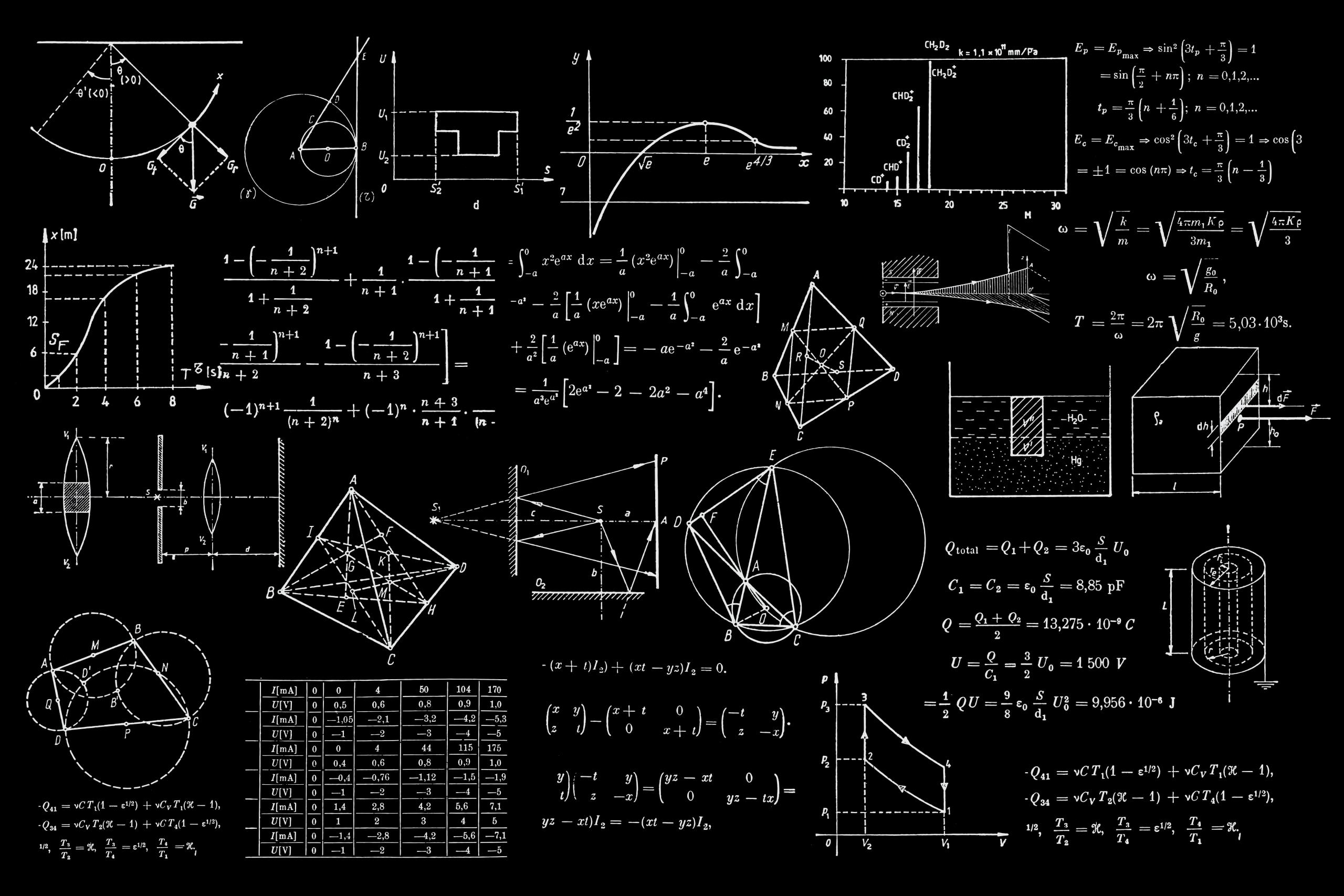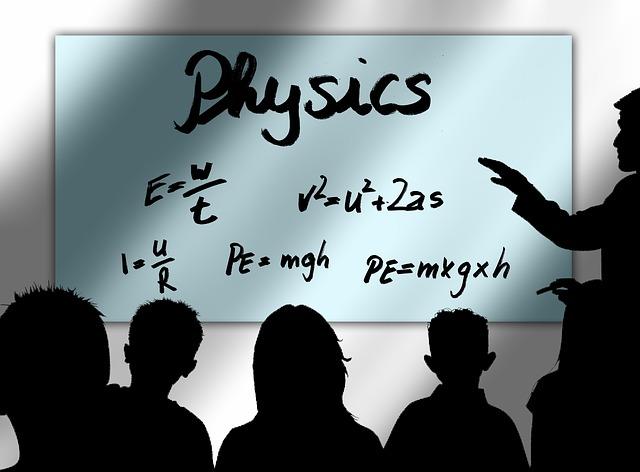What Supplies Do You Need for Online Physics and Chemistry Lessons? Both experienced scientists and maths newbies know one thing: to understand science is to understand the world. But how can we do this when some of us literally don't understand maths and science? While this academic subject is important for GCSE exams and making[…]
26 February 2022∙6 minutes to read
What is Quantum Physics? "It should be possible to explain the laws of physics to a barmaid." -Albert Einstein Comprehending the fundamental explanations of our physical world should not be that complicated yet. Unfortunately, it is. The laws of physics are taught confusingly and, if a strong foundation of science and mathematics hasn't been laid,[…]
31 January 2022∙7 minutes to read
How to Become a Physics Teacher "Better than a thousand days of dilligent study is one day with a great teacher." -Japanese Proverb There are very few professions that positively affect the lives of others the way a teacher does. Educators are not just relaying necessary information about a specific topic to their students, but[…]
1 December 2021∙7 minutes to read
Your Guide to Magnetism, Electromagnetism, and Electromagnetic Induction. In the modern world, we use magnets in an overwhelming number of different ways. From the way that a fridge door closes to the way in which your headphones play music, from the generation and transmission of electricity, to the motor in your car. All of these[…]
25 November 2019∙7 minutes to read
Everything You Never Asked about the Science of Waves. Without waves there would be nothing. No heat, no light, no sound. Not even any movement. Not a single thing. Because waves aren’t just some abstract scientific concept – or something that you only see on the surface of the ocean. They are literally everywhere at[…]
21 November 2019∙6 minutes to read
An Introduction to Everything about Space. There is a reason why even the most ancient humans were amateur astronomers, mapping the orbit of the moon and the movements of the stars. There’s a reason too that kids are as fascinated by space as they are by dinosaurs, thinking about the Big Bang, distant galaxies, and[…]
21 November 2019∙7 minutes to read
A Level and GCSE Physics Revision Tips We all know that revising for exams is difficult; it takes time, motivation and can sometimes feel like you’re getting nowhere when you still can’t remember that one calculation! There’s no shortcut to success but there are ways you can make your revision more efficient to spend less[…]
11 April 2019∙13 minutes to read
Where to Study Physics in the UK "Science is a beautiful gift to humanity; we should not distort it." -A. P. J. Abdul Kalam Learning more about scientific concepts can be an enriching experience. Biology, chemistry, and physics can be studied during primary and secondary school or as part of further education at a qualified[…]
13 February 2019∙9 minutes to read
Physics Revision Resources "Be a lifelong student. The more you learn, the more you earn and more self confidence you will have." -Brian Tracy Learning is a constant experience that is observed from infancy to old age. As humans, we will never stop learning, and that is an astonishing fact; the joy of discovering a[…]
28 January 2019∙9 minutes to read
What is Physics? From Archimedes’ Principle, dating back to around 250 BCE to the race to prove quantum gravity, the curiosity of our physical world has stirred the human mind as no other discipline ever has. And yet, for the most part, people are afraid of physics. Students dread learning it and schools report ongoing[…]
28 December 2018∙7 minutes to read
How to Teach Physics For Kids Does your child know what the periodic table is? Do they understand gravity, magnetism or states of matter? Do they know who Isaac Newton is and all about Newton's law of motion? Have you ever talked to your child about Earth and planets in our solar system? If the[…]
21 December 2018∙9 minutes to read
A Physics Degree Can Offer So Much Although the sciences of biology, chemistry, and physics often have a reputation in school for being particularly difficult or challenging subjects, the truth is that they are some of the most rewarding subjects that you can study. Physics, for example, can help teach you more about how things[…]
3 December 2018∙9 minutes to read
GCSE Physics Syllabus: All the Topics at a Glance "Science is beautiful when it makes simple explanations of phenomena or connections between different observations. Examples include the double helix in biology and the fundamental equations of physics." -Stephen Hawking In the United Kingdom, secondary school students have a wide variety of GCSE subjects to choose[…]
3 December 2018∙9 minutes to read
The physical world. To better understand natural science, the subject of physics was introduced to organize. Through physics topics, Matter is discussed, its fundamental constituents, its motion and behaviour through space and time, and how it’s related to energy and force. Physics is a fundamental academic discipline that is reviewed by students at a secondary school level. If pupils develop an affinity or interest in physics, they often decide to further their understanding at a university level. Let’s discuss the topic of physics in more detail.
Why Study Physics?
If you didn’t study physics in high school and now you’re an adult learner, are you on the fence about whether you should dedicate time now to reviewing physics? If so, here are three reasons that should convince you to give physics a second chance. Firstly, physics is the foundation of many important subjects such as chemistry, oceanography, and astronomy. So, if you want to learn more about said subject, you’ll have to know the laws of physics. Secondly, physics students gain many transferrable skills that will benefit them in the future and help them to find jobs. For example, physicists hone analytical, problem-solving, data collection, and revision skills. Thirdly, if you’re good at sciences and you’re looking to make cash, physics careers pay the most in comparison to other science jobs. Also, physics employment positions are always in-demand which leads to stable working conditions. All of these motives to study physics should be enough for you to focus on the positive and not how difficult physics is as a subject.
What are the 7 Branches of Physics?
Since it would be possible all the laws and explanations of physics in only one category, there are seven primary branches of physics that are reviewed by students. Such as? For example, the seven primary sectors of physics include mechanics, thermodynamics, vibrations and waves, optics, electromagnetism, relativity, and quantum mechanics. All of these major subjects have smaller topics that can be reviewed by students.
Jobs in Physics
If you loved your study of physics so much during high school that you decided to continue learning at a university level, you are preparing yourself for a stable job in the sector of physics. But, what are the most common jobs for physics majors upon graduation? Persons with physics majors are hireable across various sectors since the skills they’ve honed are transferrable and useful for many jobs. However, if you want to stay close to your roots the most typical employment positions in the field of physics include accelerator operator, applications engineer, data analyst, design engineer, data analyst, design engineer, high school physics teacher, professor of physics, IT consultant, lab technician, and engineer. After graduation, most persons with physics degrees have no trouble finding employment. Also, jobs in physics are well-paid and boast countless benefits.
Tips for Studying Physics
Are you in your last year of a physics degree and finding it hard to keep your head above water to pass your examinations? Are you struggling to comprehend basic physics concepts as an adult learner? Since physics is such a diabolical academic discipline, it comes as no surprise that individuals face difficulties when reviewing physics. Thankfully, there are suggestions from experienced ones on how to ace physics like a boss. Such as? First and foremost, you need to master the basics like velocity, distance, development, and kinetic energy since, without a solid foundation, there is no way you’ll be able to advance to more complex terms such as quantum physics. Secondly, do your homework. If you don’t take an active interest in your learning, you’ll undoubtedly fail your final exams. Listen in class and regularly do your coursework assignments to avoid falling behind. Thirdly, talk with other physics students by joining study groups. The frank conversations and brainstorming sessions you’ll have with other like-minded pupils will add variety to your stale study routine while at the same time helping you to fill any gaps in your learning. If you follow all three of these suggestions, you’ll ace physics like the champion you are!
As a way of concluding, the study of physics expands a person’s knowledge of the physical world and students should do all they can to effectively learn the laws of physics.














